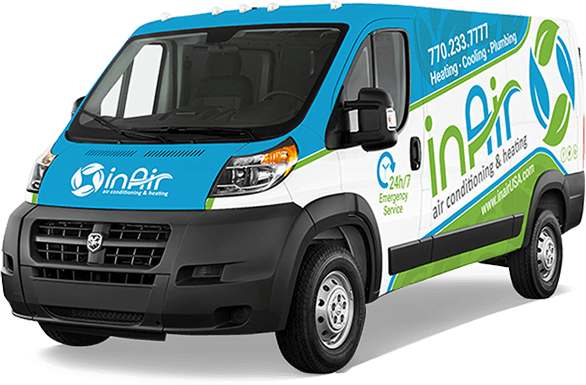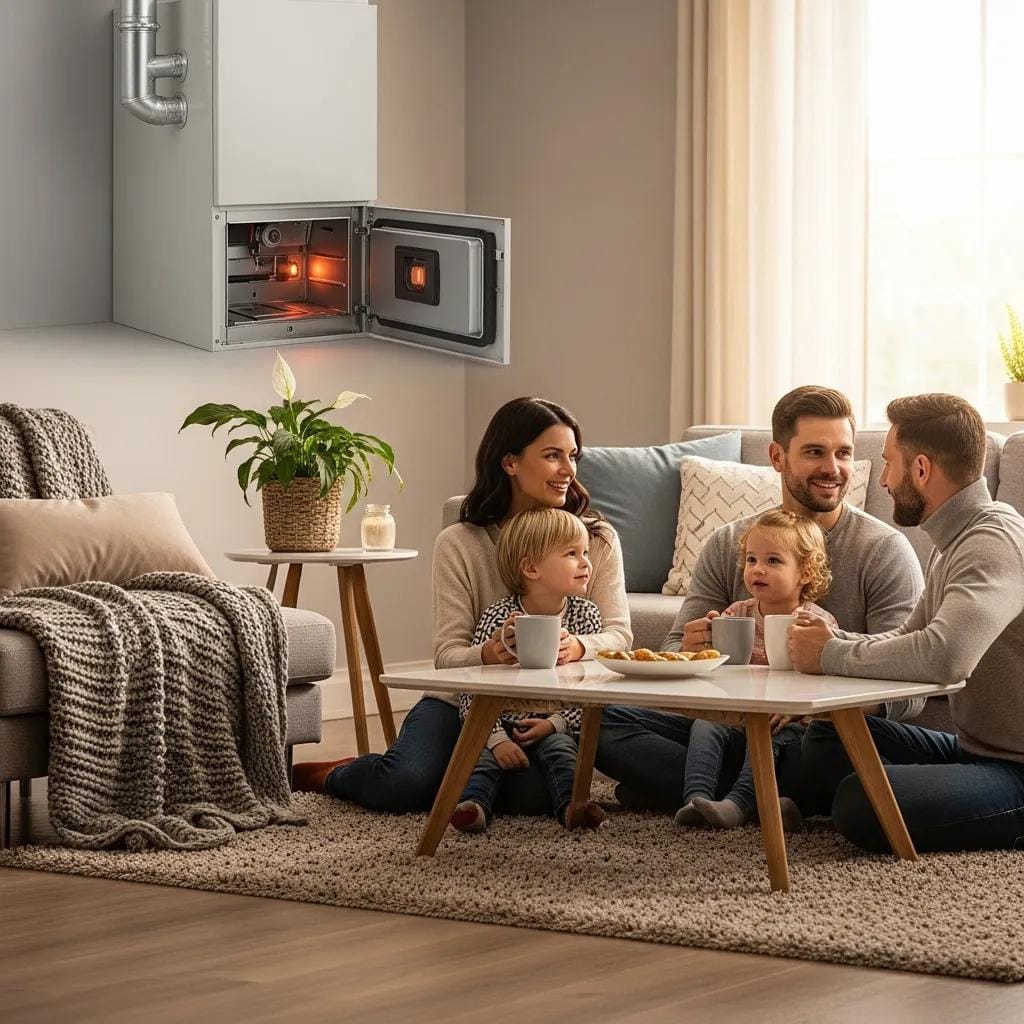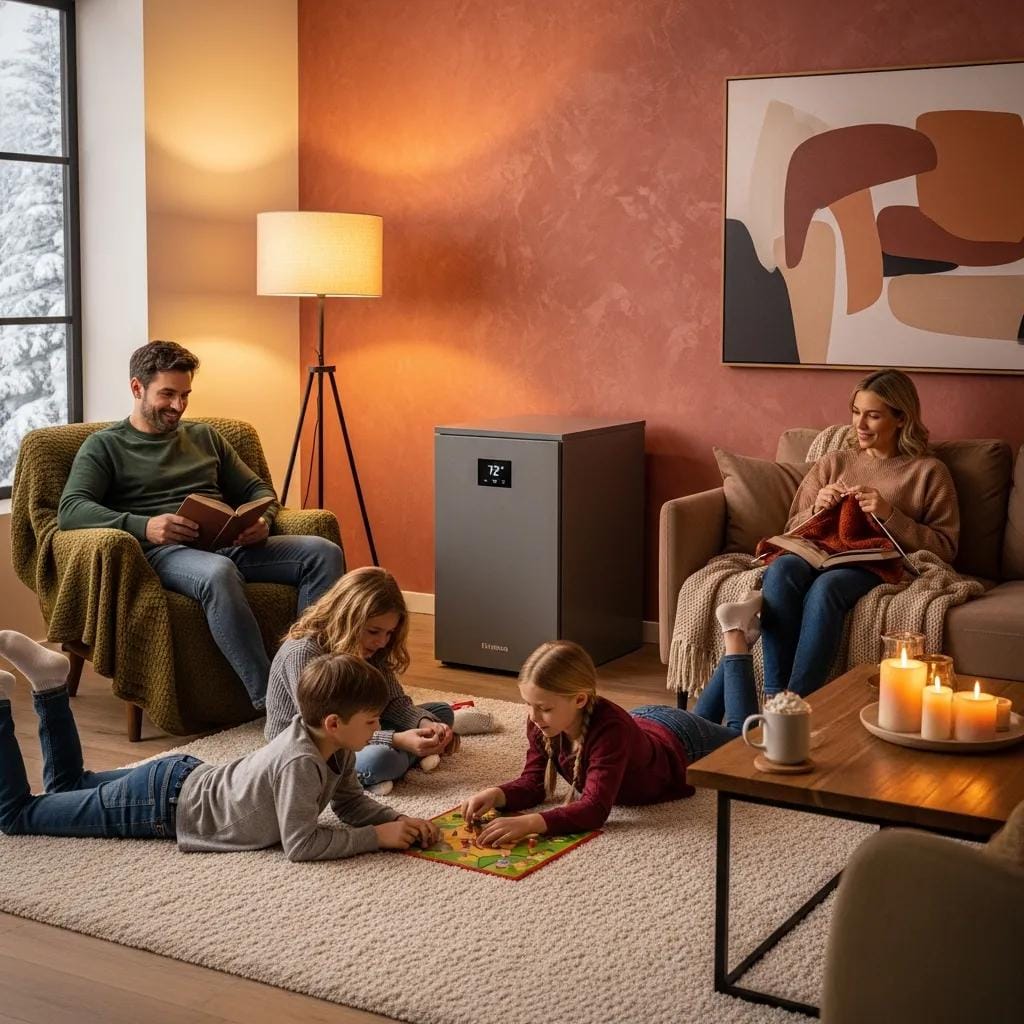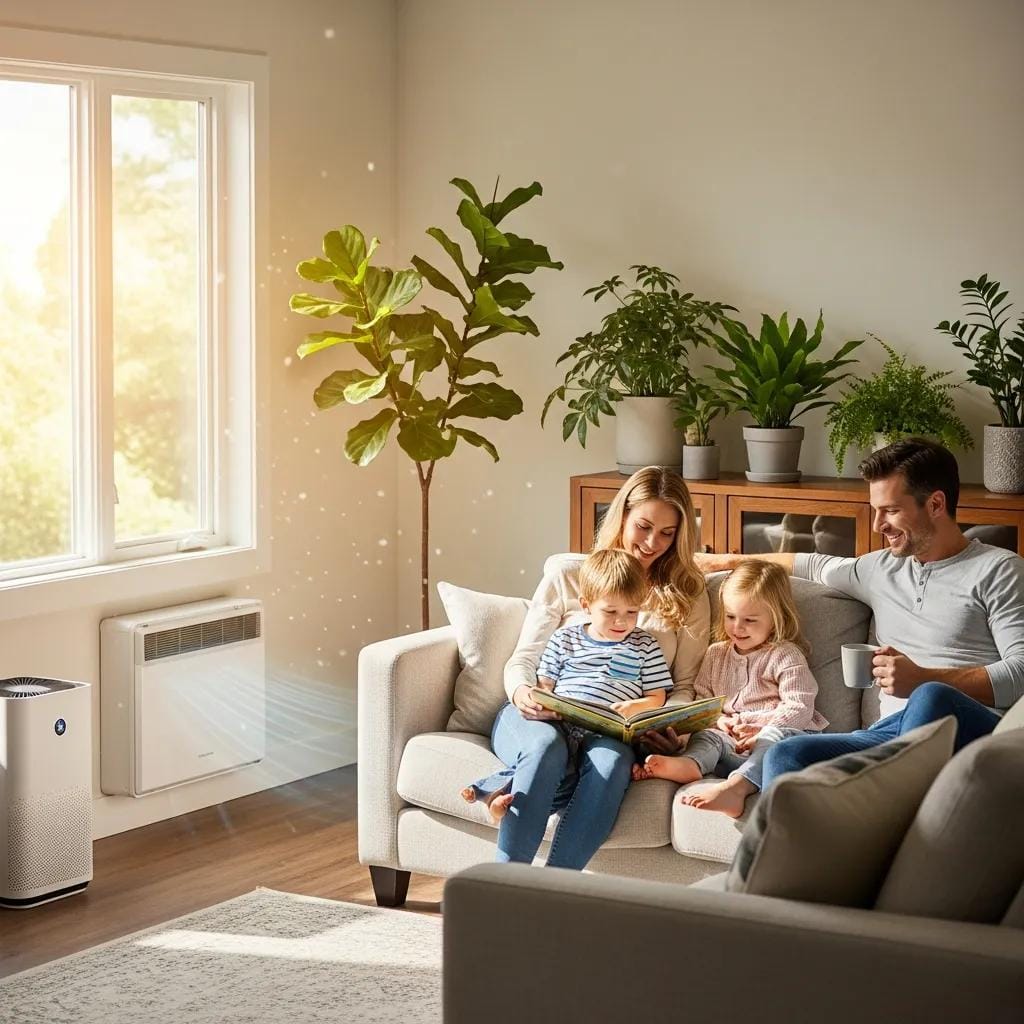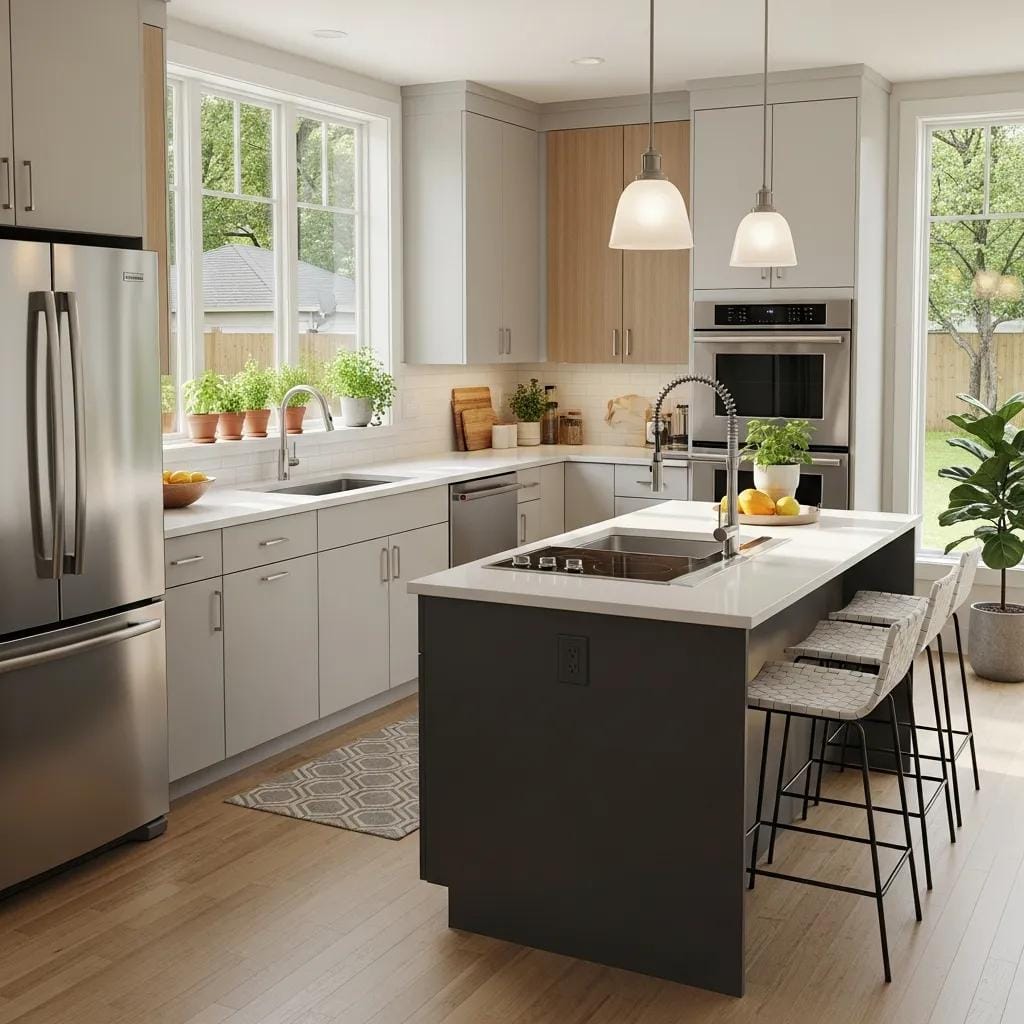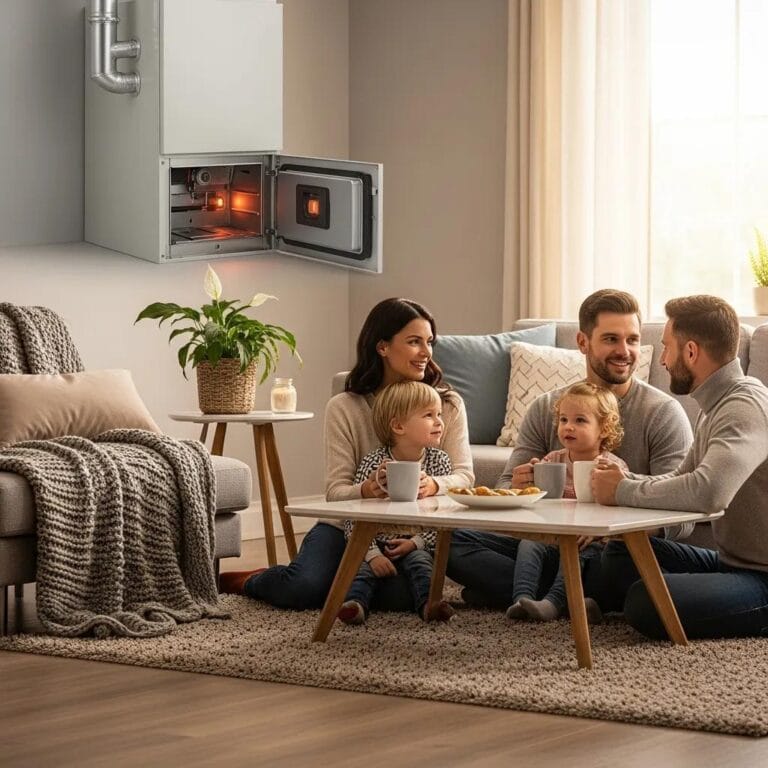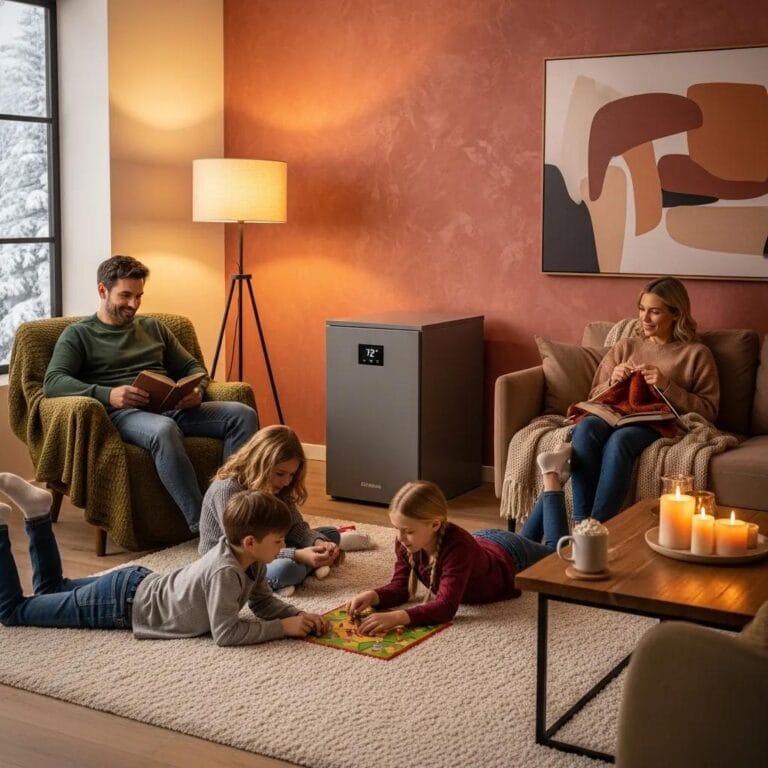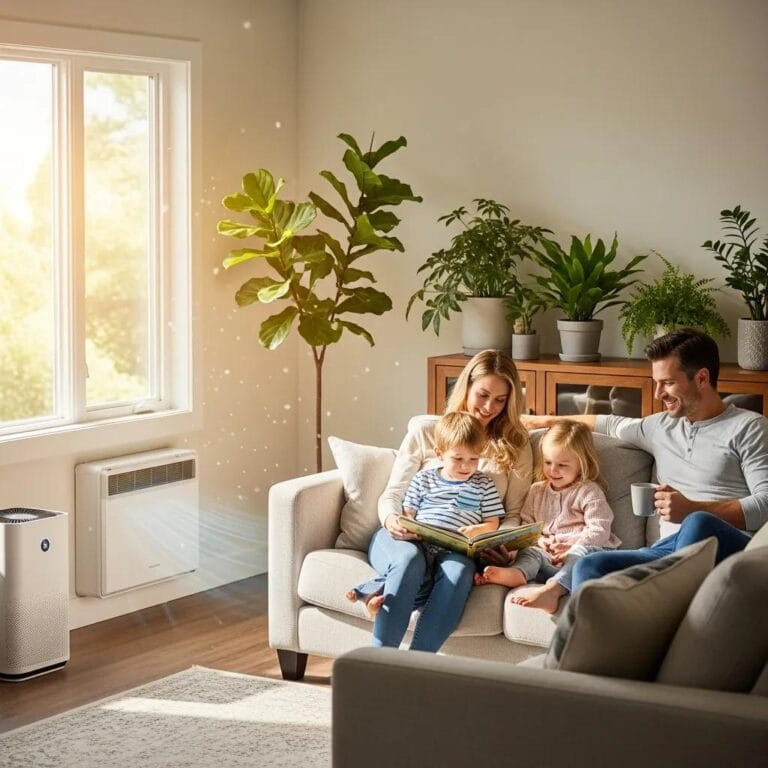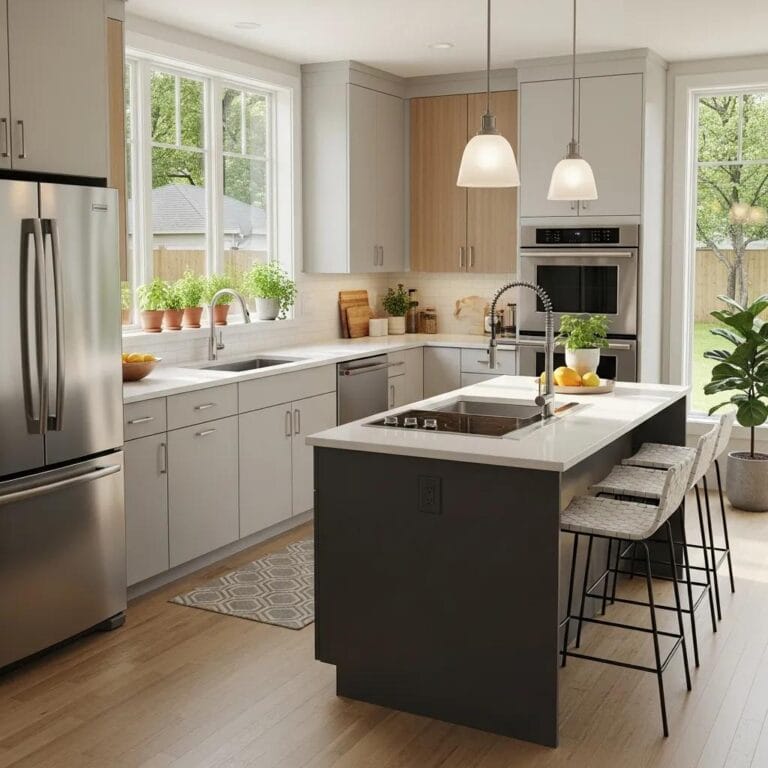Choosing the right HVAC system for your Atlanta home isn’t just about comfort—it’s about finding a system that can handle Georgia’s hot, humid summers and occasional winter chills efficiently and affordably. With so many options available, from traditional central air units to modern energy-saving alternatives, homeowners often feel overwhelmed by the choices. The right system can lower your utility bills, improve indoor air quality, and keep your home consistently comfortable year-round. In this guide, we’ll break down what you need to know to make an informed decision that suits your space, lifestyle, and budget.
Stay Cool, Atlanta! Choose the Best HVAC System for You
Evaluate Your Atlanta Residence’s Unique Climate Control Requirements

Addressing your home’s climate control needs in Atlanta starts with understanding its unique characteristics. Factors like your current comfort levels, home size and layout, insulation quality, window performance, and humidity levels all play a role. Many homeowners explore solutions like ductless mini split systems to improve performance and efficiency, especially in spaces with inconsistent temperatures. Services such as heat pump repair and air conditioning adjustments are also part of optimizing climate control. Every detail—from sunlit rooms that overheat to cooler, drafty corners—can influence system performance and help determine the best heating and cooling strategy for your space.
Analyzing Your Current Home Comfort Levels in Atlanta
One of the first steps in improving HVAC performance is paying attention to how your home feels. Are some rooms noticeably warmer or colder than others? The east-facing side of a house, for example, often heats up more during the day, increasing demand on your air conditioning. Noticing drafts or relying on room-specific heaters or fans can indicate an imbalance. Tools like indoor thermometers or simple observations during different times of day can help you gauge whether your system is keeping up. Consistent issues like uneven temperatures or signs of excessive humidity can also signal that upgrades or recalibrations may be necessary.
Factoring in Your Atlanta Home’s Size and Layout
The size and layout of your home play a critical role in HVAC efficiency. Larger homes or those with distinct zones—like a finished basement or sunroom—often benefit from systems that can adjust output based on room usage. Open-concept layouts may require higher-capacity central systems, while homes with more divided spaces might work better with zoned systems or ductless mini splits that allow for independent room control. Proper load calculations that take into account square footage, ceiling height, and layout are essential in ensuring your system isn’t overworked or underpowered.
Considering Insulation and Window Quality in Your Atlanta Property
Older homes in Atlanta often face energy efficiency issues due to outdated insulation or single-pane windows. Poor insulation allows conditioned air to escape and outdoor temperatures to creep in, making your HVAC system work harder. Upgrading to double- or triple-pane windows and ensuring insulation in areas like attics, crawl spaces, and exterior walls is up to modern standards can significantly improve indoor comfort and reduce energy costs. These changes also lighten the load on your system and support more consistent temperature control throughout the home.
Accounting for Atlanta’s Specific Humidity Challenges
Atlanta’s high humidity is a major factor when evaluating HVAC needs. Excess moisture not only impacts comfort but can contribute to mold growth and structural damage over time. Effective systems are designed to manage both temperature and humidity. Features like built-in humidistats, smart thermostats, and variable-speed air handlers that run longer at lower speeds help regulate moisture levels while maintaining steady airflow. Integrating humidity control into your overall system ensures better indoor air quality and helps protect your home’s interior.
Identifying Hot or Cold Spots Within Your Atlanta House
Noticing rooms that consistently feel too hot or too cold is a common issue in many Atlanta homes. These temperature imbalances can result from uneven sun exposure, poor insulation, or airflow obstructions. Identifying these areas using tools like thermal imaging or infrared thermometers can help isolate the root causes. In many cases, adding zone control systems or targeted solutions like ductless units can bring relief to problem areas. Addressing these imbalances improves not only comfort but also system efficiency and energy usage.
Review Various HVAC System Options Suited for Atlanta Homes
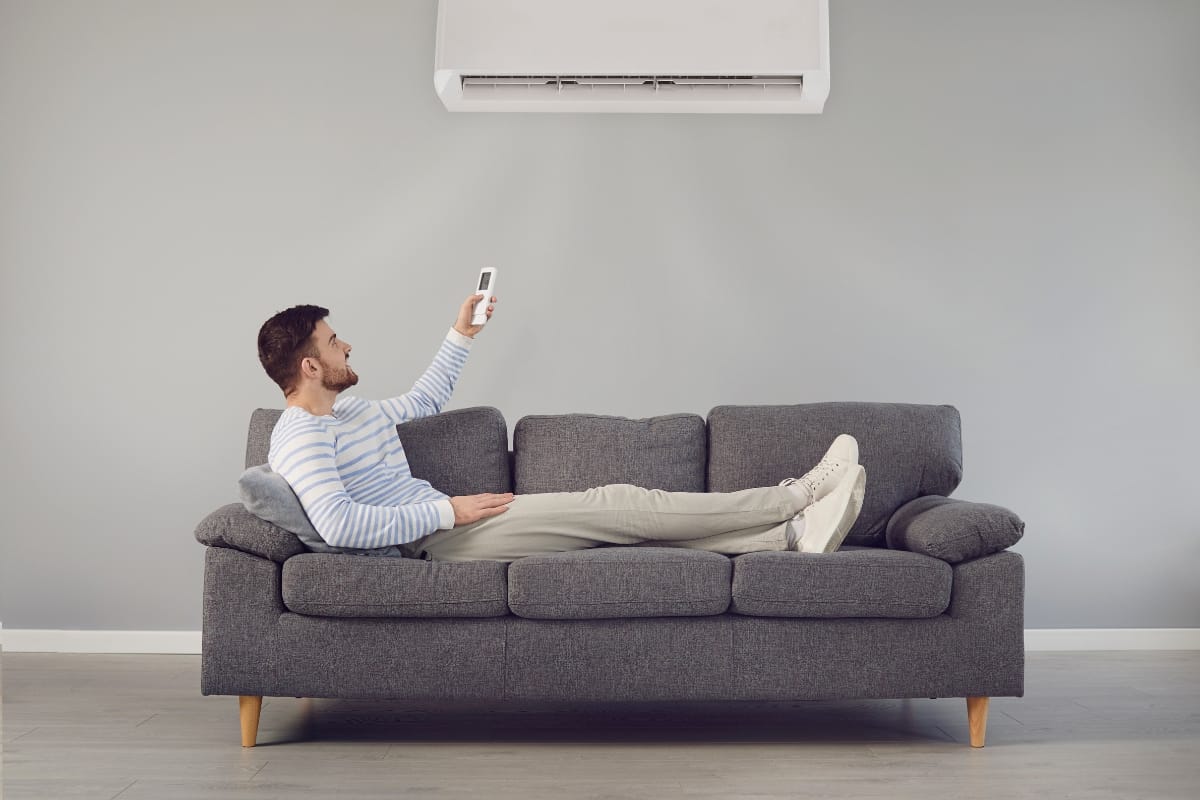
There is no one-size-fits-all HVAC solution for homes in Atlanta. The region’s varied architecture, climate, and energy usage patterns make it essential to select a system tailored to each property’s needs. Common options include central systems, heat pumps, ductless mini-splits, and even geothermal setups. Each offers unique benefits depending on home size, insulation, efficiency goals, and budget. Below is an overview of several HVAC system types and their relevance for the Atlanta area.
Central Air Conditioners and Furnaces for Atlanta Climates
Traditional central HVAC systems combine an air conditioner with a furnace and rely on ductwork to circulate air throughout the home. These systems are widely used and remain a dependable choice in many established neighborhoods. Central systems perform well when properly maintained and are most effective in homes with good duct design and insulation. To ensure efficiency, it’s important to monitor air quality and airflow, as dust buildup or duct leaks can reduce system performance. Look for models with high SEER (Seasonal Energy Efficiency Ratio) and AFUE (Annual Fuel Utilization Efficiency) ratings to optimize energy use, especially when using natural gas.
HeatPump Systems Advantages for Atlanta’s Mild Winters
Heat pump systems offer both heating and cooling using a refrigerant cycle that reverses direction depending on the season. They are particularly effective in Atlanta, where winters tend to be mild. Modern heat pumps often use inverter technology to operate at variable speeds, allowing for greater energy savings and more consistent indoor temperatures. While initial costs may be higher than some traditional systems, many heat pumps qualify for rebates and are Energy Star-certified, making them an appealing option for homeowners looking to upgrade.
Ductless Mini-Split Systems for Flexible Atlanta Home Cooling and Heating
Ductless mini-split systems are ideal for homes that lack existing ductwork or have room additions and renovations. These systems provide targeted, room-by-room climate control and avoid the energy losses often associated with ducted systems. Their quiet operation and energy efficiency make them suitable for a wide variety of living spaces. While the cost per indoor unit may be higher than conventional central systems, their modular nature allows for flexible installation and zoning, especially in homes with complex layouts or varying comfort needs.
Geothermal HVAC Systems as a Premium Atlanta Choice
Geothermal systems harness consistent underground temperatures to provide highly efficient heating and cooling. Though they require a larger upfront investment and involve more extensive installation, geothermal systems offer lower operating costs, minimal maintenance, and long lifespans—often up to 25 years or more for indoor components. These systems are a sustainable option for those prioritizing long-term savings and environmental impact. Financial incentives at the federal and state levels can also help reduce the initial installation cost, making them more accessible for eco-conscious homeowners.
Packaged HVAC Units for Specific Atlanta Housing Types
Packaged HVAC systems combine heating and cooling components into a single outdoor unit, making them especially useful in homes with limited indoor space, such as apartments, townhouses, or smaller single-family residences. These systems are typically easier to install and maintain, especially when space constraints limit options for separate units. While they may offer fewer customization options compared to multi-component systems, packaged units are efficient and convenient in settings where simplicity and space-saving design are priorities.
Determine Correct HVAC System Sizing for Your Atlanta Property

Proper HVAC system sizing is essential for maintaining indoor comfort and energy efficiency. A correctly sized system ensures consistent temperatures, balanced humidity levels, and minimal energy waste. Undersized units often struggle to meet demand, running continuously and increasing wear and tear. Conversely, oversized units tend to short cycle, which can lead to inefficient operation and uneven temperature control. Both scenarios can reduce the lifespan of the system and increase long-term costs.
The Significance of Accurate Load Calculations for Atlanta Homes
Accurate load calculations are the foundation of effective system sizing. Typically performed using Manual J methodology, these calculations take into account a variety of home-specific factors, such as insulation levels, window placement, room orientation, and total square footage. A thorough assessment ensures the HVAC system is neither too large nor too small for the space, resulting in optimal comfort and energy usage. Proper sizing also helps reduce strain on components and may lessen the need for frequent maintenance or repairs over time.
Consequences of an Improperly Sized HVAC System in Atlanta
An HVAC system that is too small will often operate continuously, leading to increased energy bills and accelerated wear. Homeowners may experience inconsistent indoor temperatures and poor humidity control. On the other hand, an oversized system can cycle on and off too quickly, never running long enough to adequately dehumidify or distribute air evenly. Both scenarios compromise comfort and drive up operating costs. These issues highlight the importance of correct sizing as part of the initial system planning process.
Professional Sizing Methods for Atlanta Residential HVAC Systems
Experienced HVAC contractors use detailed evaluations and, in some cases, computerized modeling tools to calculate appropriate system sizes. These assessments consider factors like ceiling height, number of stories, sun exposure, and the thermal performance of building materials. Properly sizing a system helps prevent future performance problems and ensures more predictable maintenance schedules. It also supports energy efficiency by matching system output to actual demand without excessive cycling or energy waste.
How Atlanta’s Climate Influences HVAC System Size Selection
Atlanta’s climate—with hot, humid summers and relatively mild winters—requires HVAC systems that are especially capable of handling cooling loads. Systems must provide reliable cooling during peak summer months while maintaining energy efficiency during transitional seasons. Climate considerations play a critical role in system selection, particularly when evaluating modern solutions like variable-speed heat pumps or ductless mini-split systems, which offer better adaptability and zoning flexibility for homes in the region.
Focus on Energy-Saving Features for Your Atlanta HVAC System
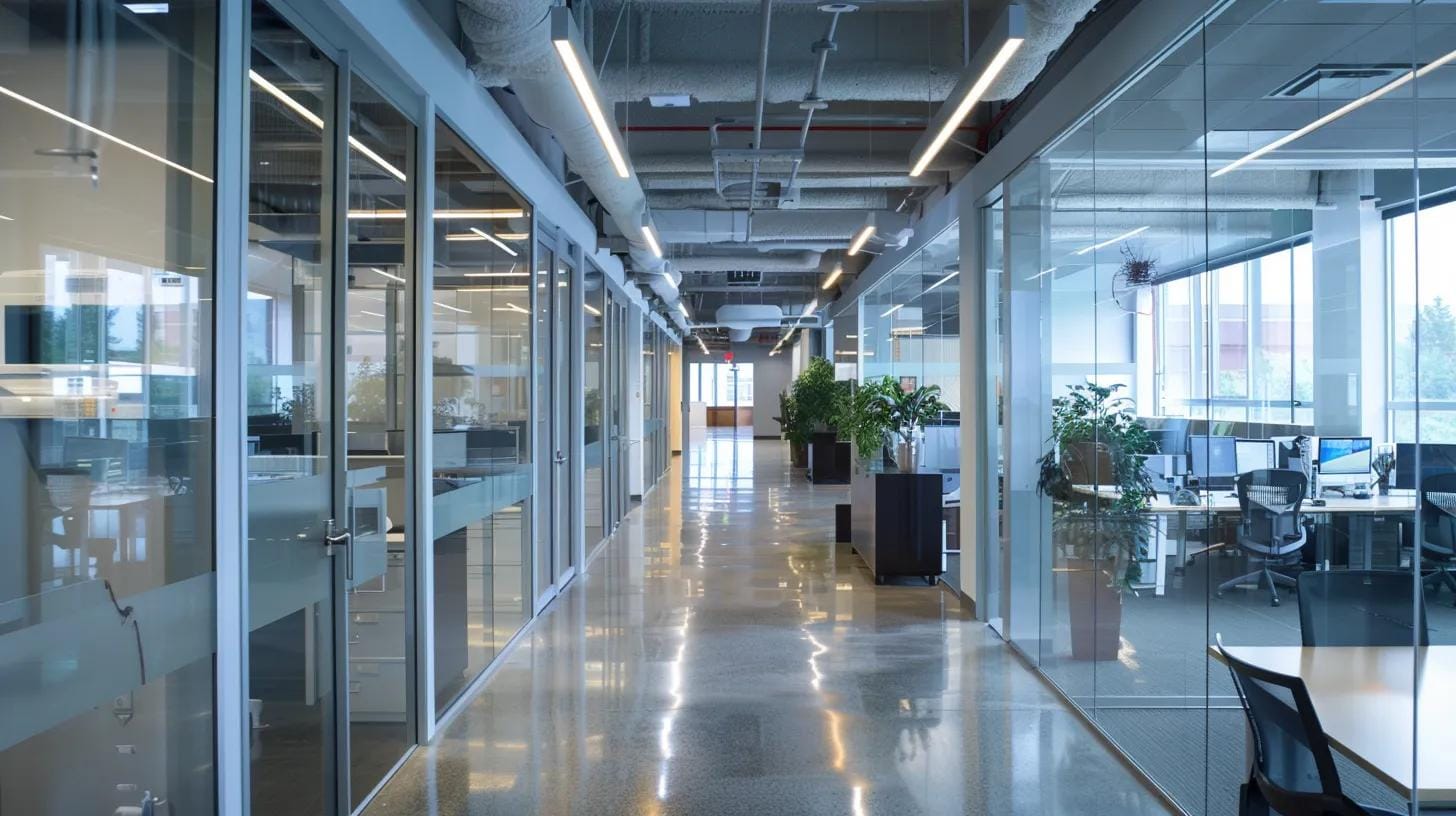
Choosing an HVAC system with strong energy-saving features helps reduce both operating costs and environmental impact. In a city like Atlanta, where seasonal temperature swings are significant, energy-efficient solutions can also contribute to year-round comfort and system longevity.
Understanding SEER, EER, AFUE, and HSPF Ratings for Atlanta Systems
Efficiency ratings such as SEER (Seasonal Energy Efficiency Ratio), EER (Energy Efficiency Ratio), AFUE (Annual Fuel Utilization Efficiency), and HSPF (Heating Seasonal Performance Factor) serve as key benchmarks for system performance. Higher ratings generally indicate greater efficiency and lower energy consumption. These metrics, along with Energy Star certification, help homeowners make informed decisions when comparing HVAC models. Choosing equipment with strong ratings can significantly reduce utility costs over time while enhancing indoor comfort.
Seeking Energy Star Certified HVAC Systems in Atlanta
Energy Star-certified systems are built to meet strict energy efficiency standards and are particularly effective at reducing energy usage without sacrificing performance. In Atlanta’s hot, humid summers and mild winters, these systems help manage seasonal demands efficiently. Many models qualify for local rebates or incentive programs, making them a smart choice for those looking to maximize long-term savings and environmental benefits.
Benefits of Variable-Speed Technology in Atlanta HVAC Units
HVAC systems equipped with variable-speed compressors and fans can adjust output based on real-time demand, resulting in more consistent indoor temperatures and better humidity control. This technology reduces energy waste by operating more precisely than single-speed systems. It also extends system lifespan by minimizing unnecessary wear and tear, while offering quieter and smoother operation throughout the home.
Smart Thermostat Compatibility With Your Atlanta HVAC System
Smart thermostats enhance efficiency by offering programmable settings and remote access, allowing homeowners to adjust temperatures based on occupancy, time of day, or weather conditions. In a climate like Atlanta’s, where outdoor conditions can change quickly, smart thermostats help maintain comfort while preventing unnecessary energy use. Their integration with HVAC systems allows for improved system responsiveness and can contribute to lower monthly utility bills.
Long-Term Utility Savings With an Efficient Atlanta HVAC System
Energy-efficient HVAC systems can reduce annual energy expenses by as much as 15 to 20 percent. Over the lifespan of the equipment, these savings add up significantly. Additionally, systems that operate more efficiently place less strain on local energy infrastructure and help support broader sustainability goals. Proper installation and regular maintenance further enhance performance and reduce the need for repairs, extending the life of the system and minimizing long-term costs.
Plan Your Budget for an Atlanta HVAC System Purchase and Installation
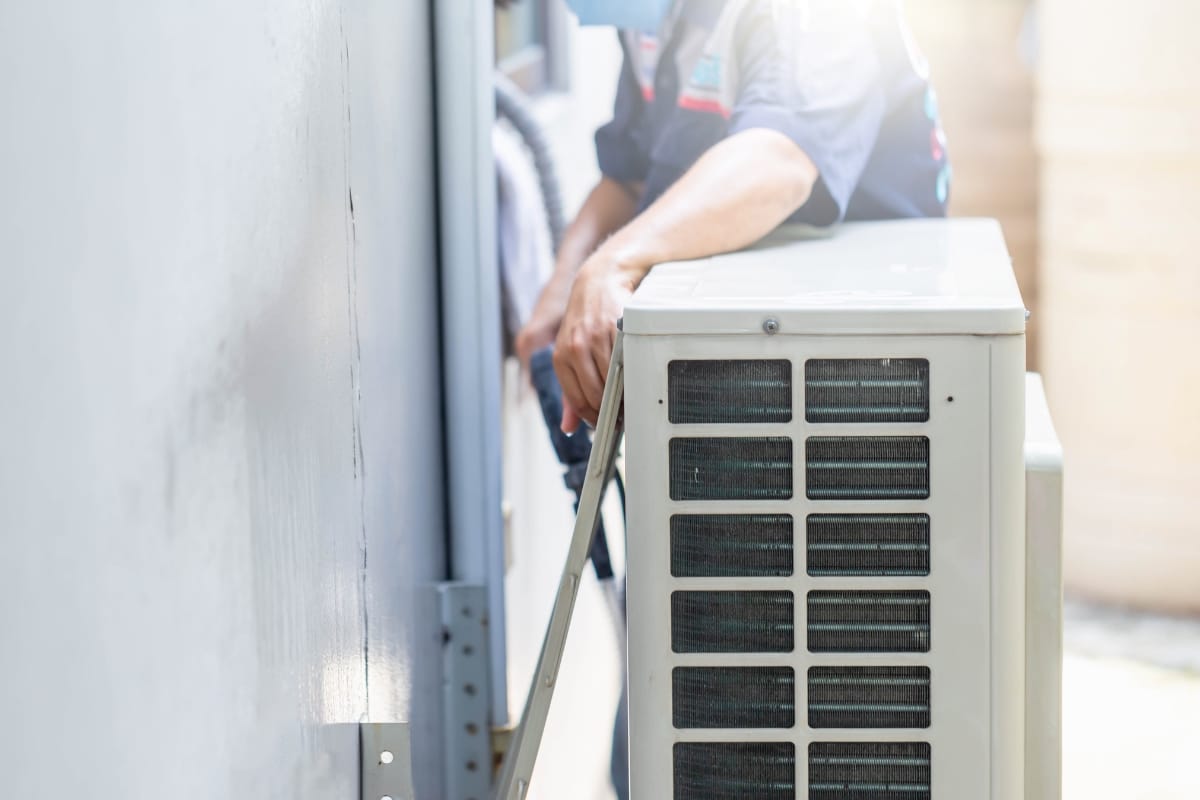
Creating a realistic budget for a new HVAC system involves more than just the initial purchase and installation. It’s important to factor in long-term operating expenses, including energy consumption, routine maintenance, and potential repairs. Careful financial planning ensures that your chosen system offers reliable comfort while aligning with your budget over time.
Average Costs for Different HVAC System Types in Atlanta
HVAC system costs in Atlanta can vary widely depending on the type of system installed. Central systems with furnaces generally range from $5,000 to $10,000, while heat pumps may cost between $7,000 and $12,000. Ductless mini-split systems typically fall in the $3,000 to $8,000 range, offering a more flexible option for additions or zone-specific needs. Packaged units, often used in smaller homes or tighter spaces, may be less expensive overall. Geothermal systems, considered a premium option, can cost between $20,000 and $30,000 but offer significant long-term energy savings and durability.
Factoring in HVAC Installation Expenses in the Atlanta Region
Installation costs are influenced by several factors, including labor rates, ductwork modifications, and any required electrical upgrades. Labor can represent 40% or more of the total installation expense. In some cases, homes may need duct redesigns or reinforcements to accommodate a new system, especially when switching from one type of system to another. Understanding the scope of work involved in installation helps prevent unexpected costs during the project.
Balancing Upfront Investment With Future Operating Costs for Atlanta Systems
Though high-efficiency HVAC systems often come with higher upfront costs, they typically deliver lower monthly utility bills and reduced maintenance needs. When budgeting, consider the total cost of ownership, which includes the system price, installation, energy use, maintenance, and potential repairs over the system’s lifespan. A well-balanced investment prioritizes both short-term affordability and long-term value.
Obtaining Multiple Quotes for Your Atlanta HVAC Project
Gathering detailed quotes from multiple HVAC contractors provides a clearer picture of current market rates and helps ensure competitive pricing. Comprehensive proposals should include a breakdown of labor, equipment, warranties, and any additional services or materials required. Comparing options side by side makes it easier to evaluate which offer provides the best combination of quality, service, and cost efficiency for your project.
Find a Reputable HVAC System Professional in Atlanta

Hiring a qualified HVAC contractor is essential for proper system installation, energy efficiency, and long-term performance. A professional with the right credentials and experience can help ensure your investment delivers lasting comfort and value.
Verifying Licenses and Insurance for Atlanta HVAC Contractors
Before moving forward with any contractor, it’s important to confirm that they hold the necessary licenses and insurance as required by Georgia law. Proper licensing ensures the contractor is trained to meet building codes and safety standards, while insurance helps protect homeowners from potential liability during installation or repair work.
Checking Reviews and References for Atlanta HVAC Installers
Customer reviews and references provide valuable insights into a contractor’s reliability, work quality, and customer service. Positive feedback on punctuality, communication, and professionalism can help narrow down your options. Reviews that mention experiences with services such as system tune-ups, air conditioning repairs, or furnace maintenance can also give a better picture of how the contractor handles ongoing support and troubleshooting.
Requesting Detailed Proposals for Your Atlanta HVAC System
A well-structured proposal should clearly outline equipment costs, labor charges, installation details, and any potential additional fees. For example, if the project involves ductless mini-split systems or other specialized components, those costs should be itemized. The proposal should also specify estimated timelines, system specifications, and warranty coverage to help you make an informed decision and avoid surprises later.
Understanding Warranties Offered on Atlanta HVAC Systems and Labor
Warranties provide a layer of protection by covering potential defects in parts or labor. Reviewing warranty terms carefully helps clarify what’s included—such as coverage for system components, service calls, or scheduled maintenance—and for how long. This is especially important in Atlanta, where climate conditions can place extra demand on HVAC systems throughout the year, increasing the potential for wear and tear.
Account for Ongoing Upkeep of Your Chosen Atlanta HVAC System
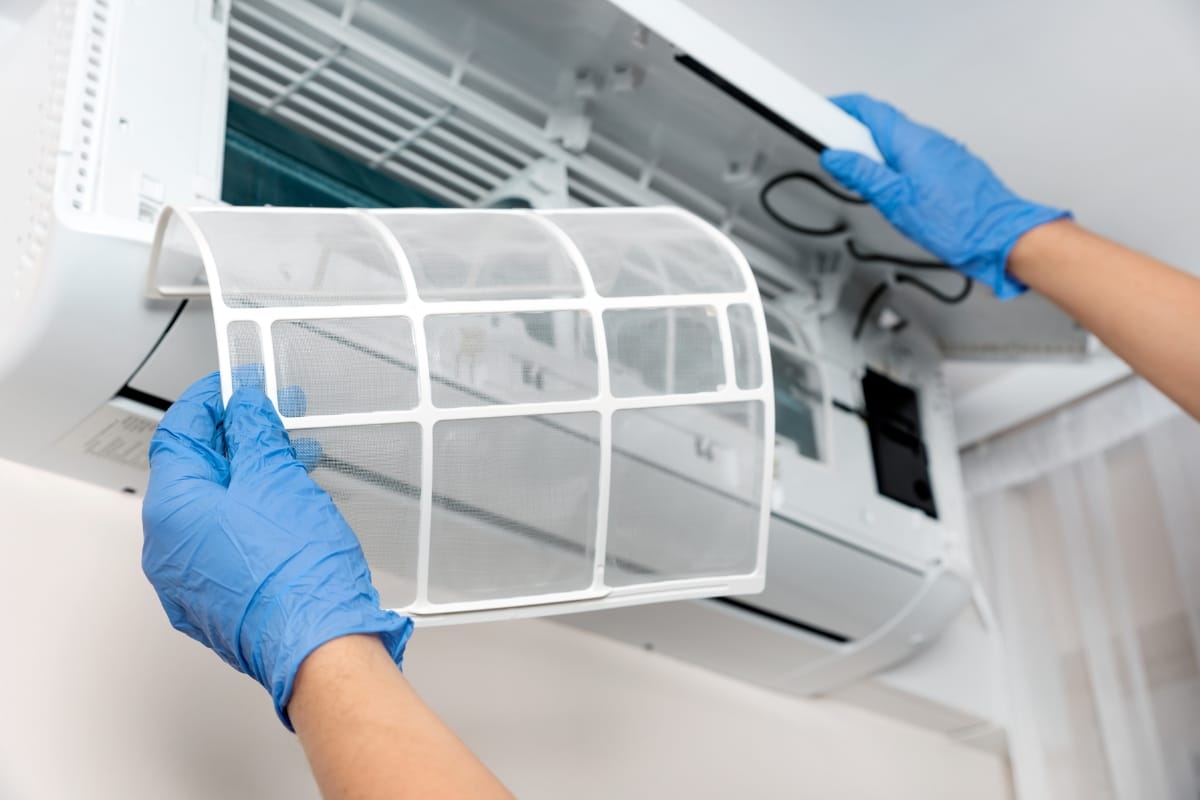
Regular maintenance is essential for ensuring the long-term efficiency, reliability, and performance of your HVAC system. Ongoing care helps extend equipment lifespan, reduce repair needs, and maintain indoor comfort throughout the year.
Typical Maintenance Schedules for Residential HVAC Systems in Atlanta
A semi-annual maintenance schedule—typically in the spring and fall—is recommended to keep systems operating efficiently. Routine tasks include replacing air filters, inspecting ductwork, checking refrigerant levels, and calibrating thermostats. These preventative measures help identify potential issues early, reducing the likelihood of system failures during extreme weather conditions and minimizing long-term repair costs.
DIY HVAC System Care Tips for Atlanta Homeowners
Homeowners can take several simple steps to support system performance between professional visits. These include regularly changing air filters, cleaning vents and grilles, clearing debris around outdoor units, and verifying that thermostat settings are appropriate for the season. While these tasks don’t replace professional maintenance, they contribute to energy savings and help prevent avoidable wear on system components.
Advantages of Professional HVACMaintenance Plans in Atlanta
Professional maintenance plans typically include comprehensive inspections, system cleaning, and performance checks. Many plans offer added benefits such as priority scheduling, seasonal tune-ups, and detailed service reports. These programs help ensure that HVAC systems are kept in peak condition and may also include warranty extensions or discounts on parts and labor, offering peace of mind and long-term cost savings.
How Regular Care Affects HVAC System Lifespan in Atlanta
With consistent maintenance, HVAC systems can often last 15 to 20 years. Regular inspections and timely repairs reduce mechanical strain, improve energy efficiency, and help avoid major breakdowns. A well-maintained system not only performs better over time but can also enhance home resale value, as buyers often look for signs that mechanical systems have been properly cared for.
Investigate Financial Incentives for Your New Atlanta HVAC System

Financial incentives can significantly reduce the upfront costs associated with upgrading to a modern, energy-efficient HVAC system. Understanding the available programs at the federal, state, and local levels can help homeowners make informed and cost-effective decisions.
Federal Tax Credits for Energy-Efficient HVAC Systems
Federal tax credits may offset a portion of the cost for qualifying HVAC equipment and installation. To be eligible, systems typically must meet specific energy efficiency benchmarks, such as high SEER (Seasonal Energy Efficiency Ratio) and AFUE (Annual Fuel Utilization Efficiency) ratings. Ductless mini-split systems and other high-efficiency units may qualify. It’s advisable to consult a tax professional to ensure eligibility and to properly apply for any available credits.
Georgia State and Local Rebates for Atlanta HVAC Upgrades
State and local programs in Georgia, including those offered by utility companies, often provide rebates to promote the installation of energy-efficient systems. These rebates may apply to various system types and components, including heat pumps, smart thermostats, and upgrades involving ductwork. Rebates can reduce installation costs significantly, helping to lower energy use and improve home comfort.
Manufacturer Promotions on HVAC Systems in the Atlanta Market
Many HVAC manufacturers periodically offer promotional incentives to encourage system upgrades. These may include extended warranties, free maintenance packages, bundled smart accessories, or discounts on specific models. When combined with other rebates and tax incentives, these promotions can make investing in a high-performance HVAC system more affordable and appealing.
Exploring Financing Options for Your Atlanta HVAC Investment
Flexible financing options are commonly available through contractors, lenders, or utility-sponsored programs. These may include low-interest loans, deferred payments, or on-bill financing that allows repayment through utility bills. Evaluating different financing offers can help homeowners balance initial costs with long-term energy savings. It’s important to review the terms carefully, including interest rates, payment schedules, and any associated fees, to determine the most suitable option.
Frequently Asked Questions
Q: How do I determine the right hvac system for my Atlanta home? A: Evaluate unique factors such as home size, layout, insulation, and current comfort levels. Professional load calculations (e.g., using Manual J) help ensure the system is accurately sized for efficient heating and cooling. For example, many opt for hvac services that offer ductless mini split options and routine tune ups to maintain peak performance. If you have any questions or need assistance, please contact us or reach out to inair heating & air in your service areas.
Q: What features should I look for to ensure energy efficiency in an HVAC system? A: Look for high seer, eer, afue, and hspf ratings, energy star certification, variable-speed technology, and compatibility with smart thermostats to reduce energy consumption and long-term costs. For additional support, consider inair heating & air as they offer comprehensive hvac services, including air conditioning repair and tune ups. If you have further questions, please contact us for expert advice.
Q: How often should I schedule maintenance for my HVAC system in Atlanta? A: Schedule professional maintenance at least twice a year (spring and fall), including additional tune ups, and perform regular DIY tasks like filter changes and cleaning to preserve system efficiency. For more hvac services across our service areas, simply contact us for further assistance.
Q: Are ductless mini-split systems a good option for older homes? A: Yes, they are ideal for older homes where installing new ductwork is challenging. Their precise, zone-specific control, combined with reliable hvac services, makes them highly efficient and reduces the need for regular tune ups. For expert installation and maintenance of your ductless mini split system, please contact us.
Q: What financial incentives are available for upgrading to an energy-efficient hvac system? A: Incentives include federal tax credits, georgia state and local rebates, manufacturer promotions, and financing options, all designed to reduce the overall investment cost. For homeowners looking to maximize their investment with comprehensive hvac services and air conditioning repair, please contact us for more details.
Q: How long will it take to recoup the investment from an energy-efficient HVAC system? A: Many homeowners see a return on investment within 5 to 10 years due to lower energy bills and reduced maintenance expenses—which may include regular tune ups and air conditioning repair—although the exact period depends on system efficiency and usage. For expert hvac services, contact us for a personalized assessment.
Q: Can I install an HVAC system myself to reduce costs? A: DIY installations are not recommended. hvac systems require specialized skills for safe and efficient operation. Instead of attempting a self-installation, consider using professional hvac services to ensure safety and optimal performance. Hiring a certified hvac professional ensures proper installation and code compliance. For comprehensive air conditioning repair and regular tune ups, contact us for more details.
Final Thoughts
Selecting the right HVAC system is crucial for comfort, energy savings, and indoor air quality in your Atlanta home. Whether you need expert advice on size, efficiency ratings, or smart controls, inAir Heating & Air has the knowledge and HVAC services to guide you to the perfect solution. Call us at (770) 233-7777 or visit our website to fill out the HVAC request form, and let our certified technicians ensure your home stays comfortable year-round.




